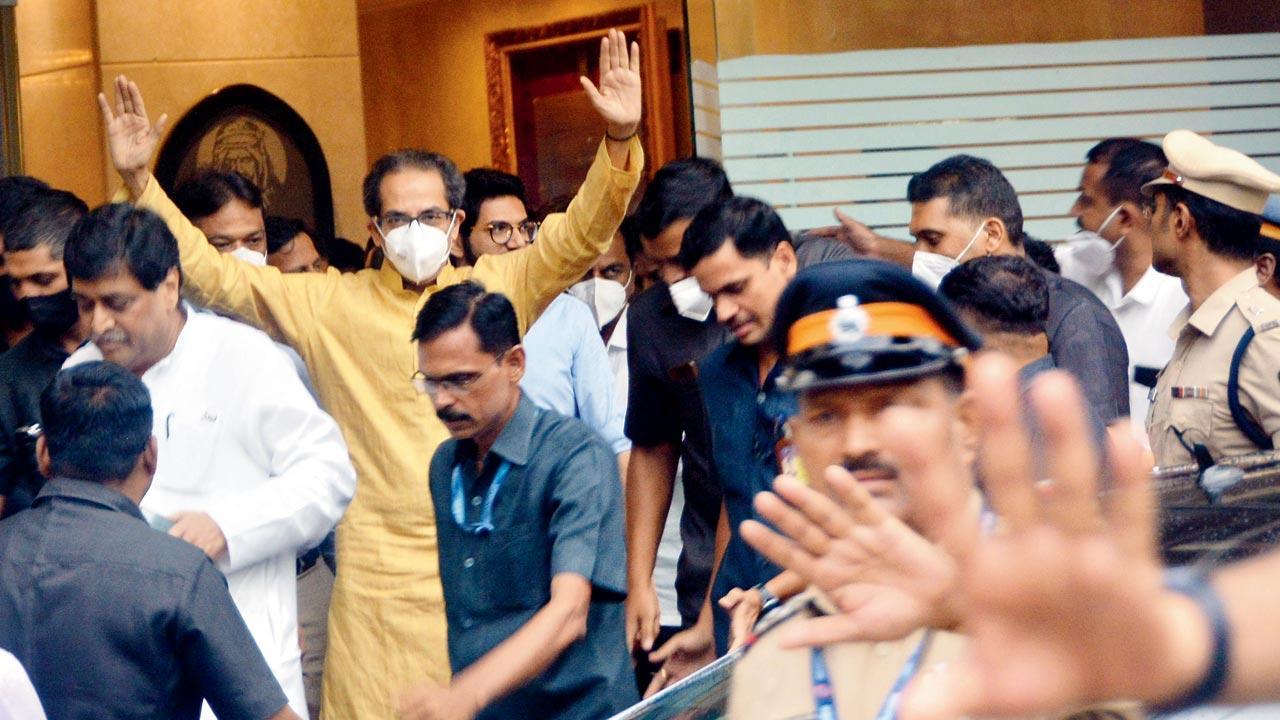Uddhav Thackeray renamed Aurangabad as Sambhajinagar and Osmanabad as Dharashiv

CM Uddhav Thackeray arrives at Mantralaya. Pic/Sayyed Sameer Abedi
In a last-ditch effort to prove his Hindutva credentials that his rebel MLAs have vehemently disputed, Chief Minister Uddhav Thackeray tried to show on Wednesday that he could overrule the Congress and NCP when his ministerial team comprising the liberal allies approved the renaming of two communally sensitive cities—Aurangabad as Sambhajinagar and Osmanabad as Dharashiv—in what is being seen as the last Cabinet meeting of the MVA government.
ADVERTISEMENT
The populist decision came on the eve of the trust motion that the Thackeray government faces in the wake of unprecedented rebellion by its majority MLAs who accused the party chief of departing from a core Hindutva agenda. While the meeting was being held, the Sena and the government argued in the Supreme Court against the governor’s directives to hold a special session on Thursday to prove the trust vote.
Left with no option but to help the CM save his party, government and face, most ministers from allies supported, but two Congress colleagues, Aslam Sheikh and Varsha Gaikwad, protested and walked out of the meeting. Both were incommunicado but people close to one of them said that the ministers strongly resented the move arguing that the government was formed with an agenda of development and the common minimum programme.
In another populist measure that targets a vote bank in Navi Mumbai and Raigad, the Cabinet decided to name the Navi Mumbai International Airport after former MP and popular leader late D B Patil. There have been huge protests to get the airport named after Patil whereas a section in the Sena wanted it given the name of party founder Balasaheb Thackeray.
Uddhav Thackeray also tried to outwit the BJP by reviving the statutory development boards for Vidarbha, Marathwada and the rest of Maharashtra. The revival of these boards has been on the BJP agenda and it had been demanding their existence for ensuring equitable distribution of budgetary funds as per a special constitutional provision.
 Subscribe today by clicking the link and stay updated with the latest news!" Click here!
Subscribe today by clicking the link and stay updated with the latest news!" Click here!







